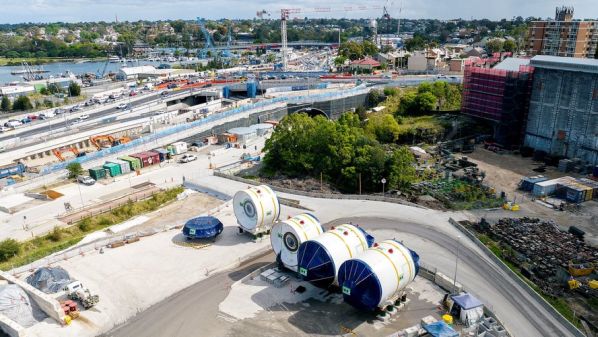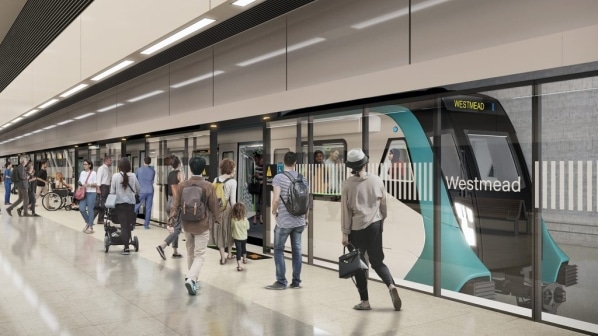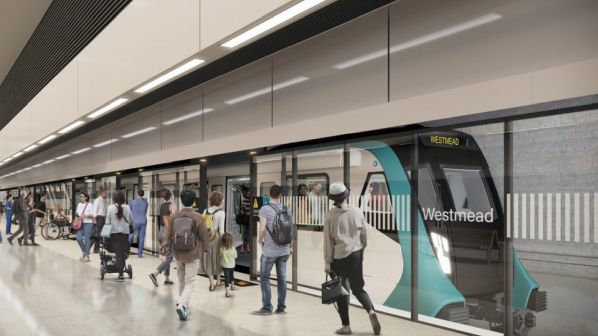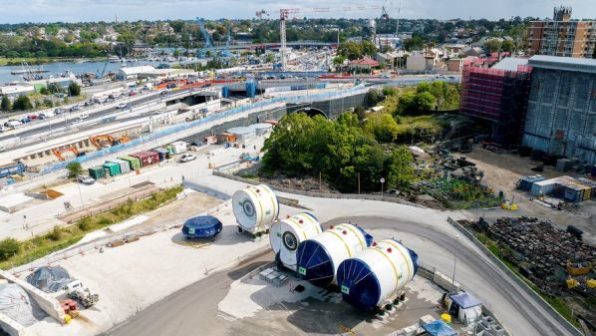THE New South Wales (NSW) state government has accepted the recommendations of an independent review that the Sydney Metro West project should continue and that Sydney Metro should complete scoping studies for up to two new stations.
The new stations will be between Sydney Olympic Park and Parramatta. The decision to proceed with the stations is based on the stimulus they will give to further infill housing development in the area.
The government also announced accelerated rezoning of several locations across NSW to enable more homes to be built closer to metro or suburban rail stations. This includes relocating Rosehill Racecourse to use the site for up to 25,000 new homes and potentially a new station.
At the same time the government extended the completion date for Sydney Metro West by two years to 2032 in order to provide “a more sustainable timeline.” It had asked that the independent review to complete its final report by mid-September rather than the end of this year to allow the cabinet to consider the timing and delivery of the project.
The independent review says Sydney Metro has been impacted by several changes to the project, year-specific funding constraints, rising costs due to inflation, and the Covid-19 pandemic, as well as general investment uncertainty since the initial business case was produced in 2018.
“Our view is that there is a limited degree to which Sydney Metro can further absorb these changed macroeconomic conditions via internal value engineering,” the review says.
The review says that it is critical that the government maintains investment commitments over the next few months and adopts the most appropriate procurement model and choice of delivery partners for Metro West.
While recommending extending completion to 2032, the review says this should not be a “deliver the project at any cost” constraint.
The review also suggests that the government considers relaxing the high project specifications to improve affordability.
“Several stakeholders have commented that the specifications of Sydney Metro, given its current scale within the market, have had a sector-wide outcome of ‘raising the bar’ especially regarding sustainability, and health and safety,” the review states.
“Relaxations to these standards may be possible (and fiscally desirable), provided that government is alert to both direct and indirect consequences.”
The review has identified a range of opportunities to further enhance the project and recommends adoption. They include:
- improved planning controls at existing transport hubs to maximise potential new housing, potentially via a state environmental planning policy for transit-oriented development
- augmenting and improving surface transport connections at metro stations
- safeguarding sites for future stations, subject to detailed feasibility studies, and
- capturing the value from changes in land use in order to provide an appropriate and efficient means of funding critical enhancement works around Metro West stations, potentially using the new Transport Project Component (TPC) mechanism within the amended Environmental Planning and Assessment Act 1979 (NSW).
Without jeopardising the overall momentum of the project, the review says a comprehensive project update should be produced for the government in order to provide a consolidated re-baselining of project schedule and cost.
The report notes that the current budget parameters assumed that tenders would commence in July 2023, and that recent delays will inevitably prolong the timescale for completing the project.
Finally, the review urges the state government to provide certainty for new projects after the current Sydney Metro programme is completed.
“Despite having invested significantly in uplifting infrastructure market capability in New South Wales, especially for Metro-based projects, over the past decade, we note that there does not appear to be a specific and actionable longer-term pipeline in place beyond current projects,” the review says.
“The NSW government should aim to provide certainty on future extensions as a priority before potential sector-wide demobilisation begins around 2026. We recommend a clear forward pipeline of staged Metro projects be developed and progressed within a financially sustainable long-term envelope.”
For detailed data on Australian rail projects, subscribe to IRJ Pro.




